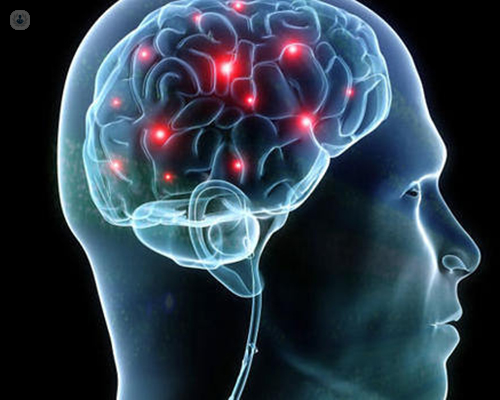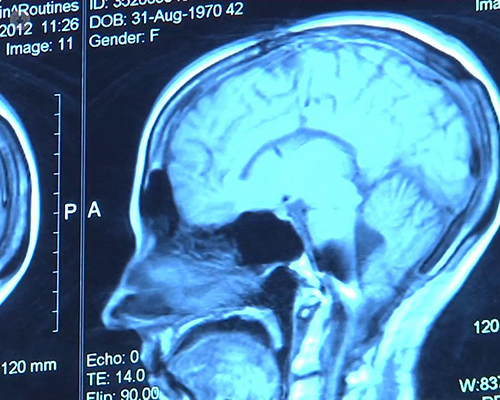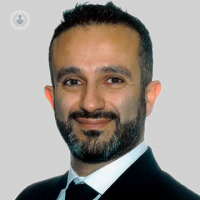Meningioma brain tumours: diagnosis, treatment and causes
Autore:Meningiomas are tumours that form on brain and spinal cord membranes inside the human skull. Interestingly, there are no clear-cut causes of this specific kind of brain tumour, but there exist plenty of different treatment options in cases where meningioma tumours have been detected.
We recently spoke with highly revered and experienced consultant neurosurgeon, Mr Yahia Al-Tamimi to gain a further, more comprehensive understanding of what exactly meningioma tumours are, and how they are diagnosed and treated.

What is a meningioma?
A meningioma is a tumour that arises from the lining around the brain. Whilst rarely cancerous, the vast majority of meningioma tumours are considered benign.
They are one of the most common brain tumours, and account for over one third of intracranial neoplasms. They do have a propensity to grow and can be located in a wide range of locations around the brain and skull base.
Due to their usually slow growth rate, they can grow to a very large size before beginning to cause symptoms. Many are discovered incidentally, most commonly when a patient is scanned for unrelated symptoms and a meningioma is discovered.
What are the causes of meningioma brain tumours?
There are no clear or obvious causes of meningiomas in the vast majority of patients. Young patients who have received whole brain radiotherapy can occasionally present later in life with meningioma(s). Other possible associations are related to gender (seen slightly more frequently in women) and other rare conditions such as neurofibromatosis type 2.
Is it hereditary?
Not usually. Whilst there may be genetic factors associated with a predisposition to developing meningiomas, this is not clear-cut.
How is a meningioma diagnosed and treated?
A meningioma is diagnosed following a brain scan. Whilst often picked up following a CT brain, the gold standard imaging is an MRI scan. Treatment is either surgical resection, stereotactic radiosurgery, fractionated radiotherapy or a combination of all three. Often, no treatment is required beyond surveillance imaging.

Can meningiomas cause dementia?
No is the short answer. Whilst very large meningiomas can compress parts of the brain (for example the frontal lobes) gradually, as well as mimic symptoms of dementia, there is no direct correlation. Similarly, surgery for meningiomas can result in brain atrophy and injury which can mimic the cognitive deficits of dementia.
Will meningioma grow back after surgery?
It can do. The risk of this is related to the volume of residual tumour after surgery and the histological grade of the tumour. Genetics factors within the tumour are currently being recognised as being incredibly important in relation to predicting growth rate following surgery.
Mr Yahia Al-Tamimi is a highly esteemed and experienced Sheffield-based consultant neurosurgeon who specialises in traumatic brain injury as well as brain tumours. If you are concerned about the potential presence of meningioma brain tumours or are curious about finding out more about this kind of brain tumour, you can book a consultation with Mr Al-Tamimi today by visiting his Top Doctors profile here.


